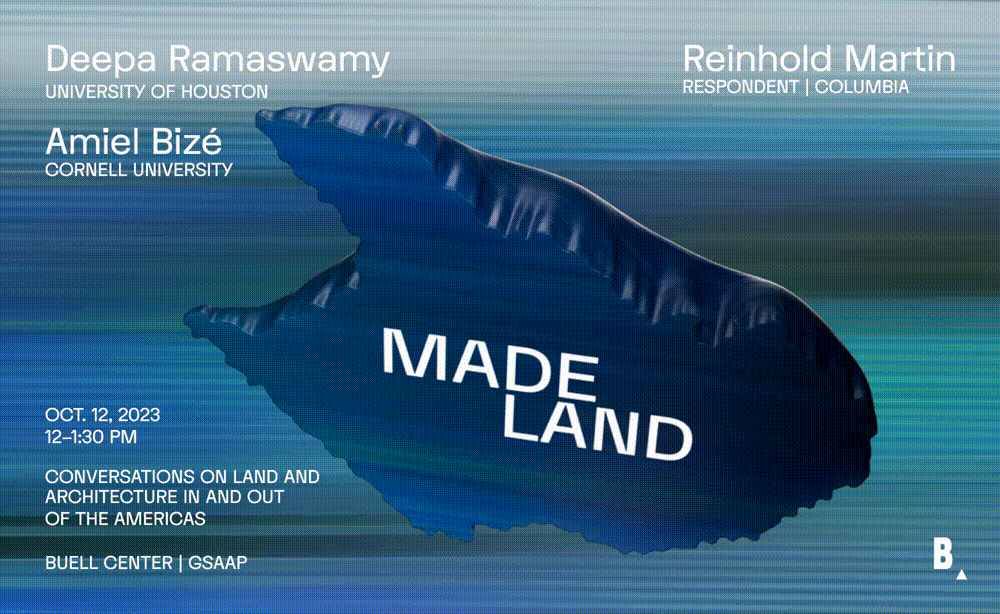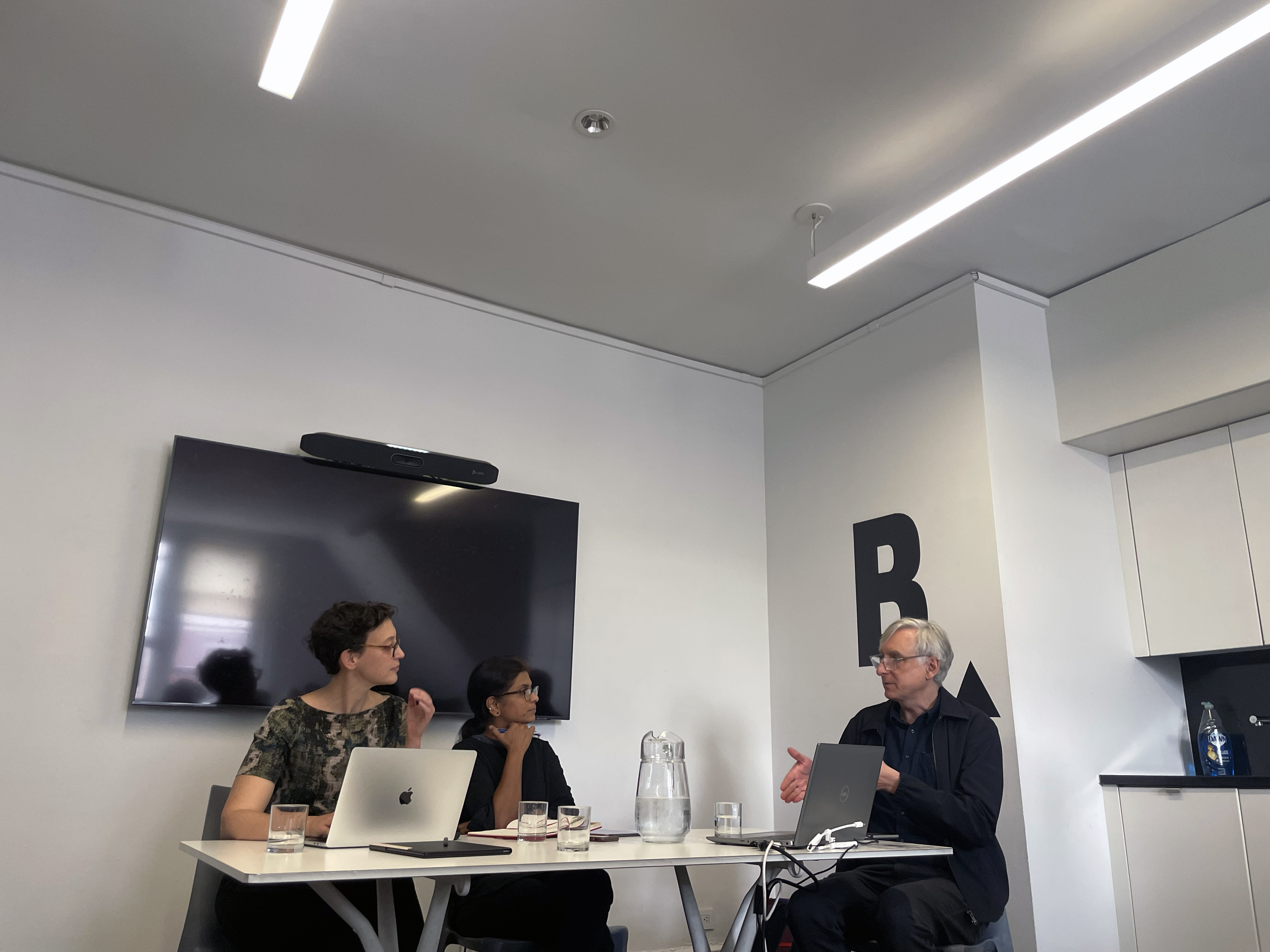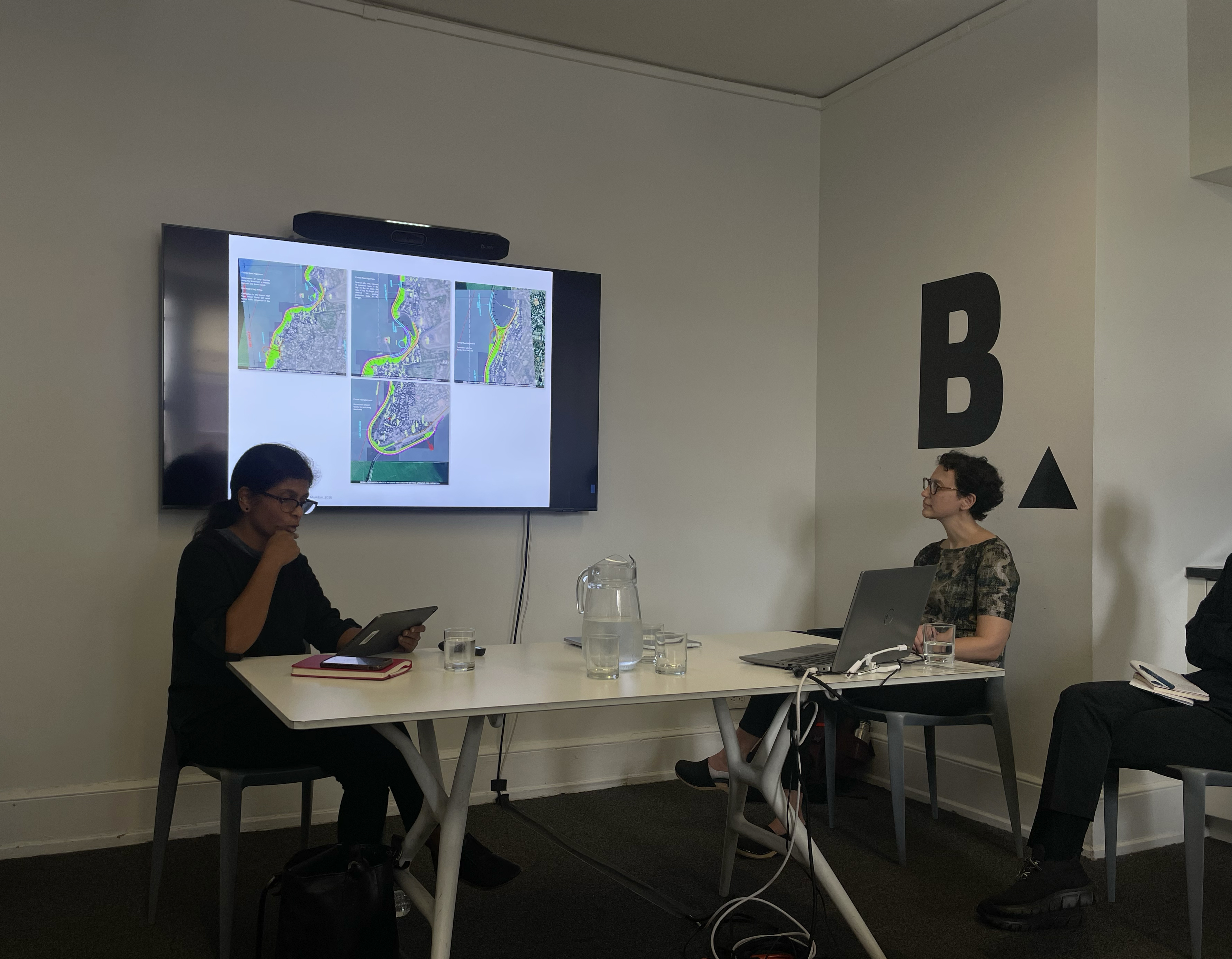
October 12, 2023
300S Buell Hall, Columbia GSAPP
Land is not found but made—through design, settlement, and all manners of inhabitation. In this conversation, Deepa Ramaswamy and Amiel Bizé discuss research that challenges the myth of natural productivity that architecture has inherited from classical economic theory: namely, that human labor mixes with virgin soil and makes free citizens and private property “grow” naturally out of the ground. Instead, by paying attention to the shape and history of land’s edges (whether the coasts of islands becoming landfill in 17th-Century Mumbai, or the exurban margins of contested forests in western Kenya) they reveal alternate modes of speculation and accumulation that continue to make land’s value and its architecture today.
Speakers:
Deepa Ramaswamy is an architect and historian who grew up in Mumbai, India. She is Assistant Professor of Architecture and Urbanism at the University of Houston. Deepa’s research examines land, legal, and environmental histories with a focus on the regulatory systems, organizational practices, and financial instruments that shape the built environment. Deepa has a Ph.D. in Architecture from MIT and other degrees from the Architectural Association in London, and Mumbai. Her ongoing research projects include tracing the history of reclaimed land along Mumbai’s coasts, and examining the privatized public realm in postwar New York City. Deepa’s research has been supported by the Graham Foundation, Getty Research Institute, and the Canadian Center of Architecture. Her works have been published in Neoliberalism on the Ground, CLOG magazine, and Arris, among others. Before her doctoral studies, Deepa was a practicing architect in Chicago and Mumbai.
Amiel Bizé is an economic anthropologist whose work focuses on social and economic transformations at capitalist margins. She is Assistant Professor in Anthropology at Cornell University. Her current research projects examine value in de-agrarianizing western Kenya and consider financialized responses to climate change that target farmers and herders in East Africa and beyond. She also has an enduring interest in practices of gleaning—the gathering of harvest leftovers—and the conceptual-material importance of remainders. Amiel received a BA in Comparative Literature and a PhD in Anthropology from Columbia University and previously worked in Germany at the University of Kassel and the University of Bayreuth.
Reinhold Martin is a historian of architecture, technology, and media, Professor of Architecture in the Graduate School of Architecture, Planning, and Preservation at Columbia University, and chair of Columbia’s Committee on Global Thought. His current work extends the study of knowledge infrastructures into two areas: the political economy of technology and philosophical aesthetics. Martin’s books include Knowledge Worlds: Media, Materiality, and the Making of the Modern University (2021); The Urban Apparatus: Mediapolitics and the City (2016); Utopia’s Ghost: Architecture and Postmodernism, Again (2010); and The Organizational Complex: Architecture, Media, and Corporate Space (2003). Previously, he has directed the Temple Hoyne Buell Center for the Study of American Architecture and chaired the Society of Fellows / Heyman Center for the Humanities at Columbia, and was a founding co-editor of the journal Grey Room.


Organized as one of the “Conversations on Architecture and Land in and out of the Americas” by the Temple Hoyne Buell Center for the Study of American Architecture at GSAPP.